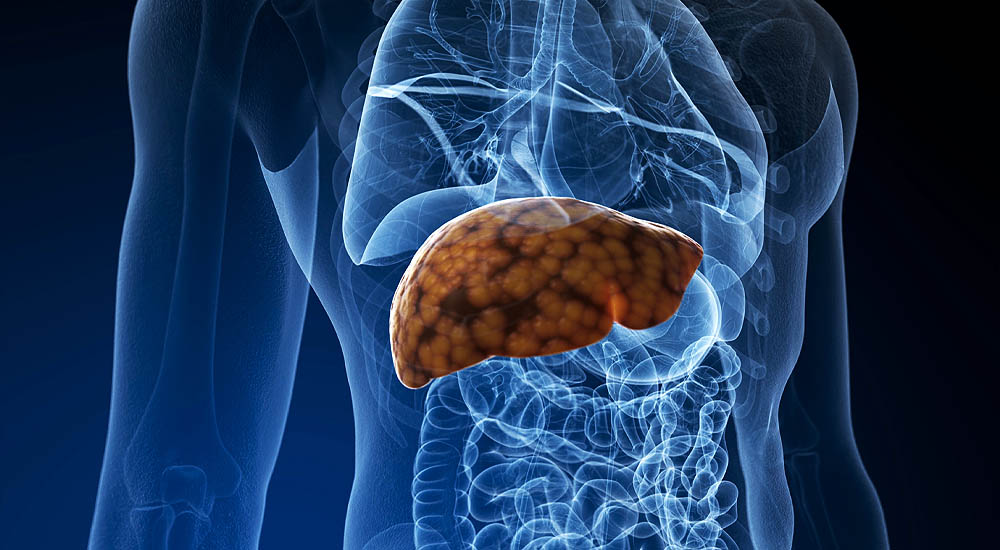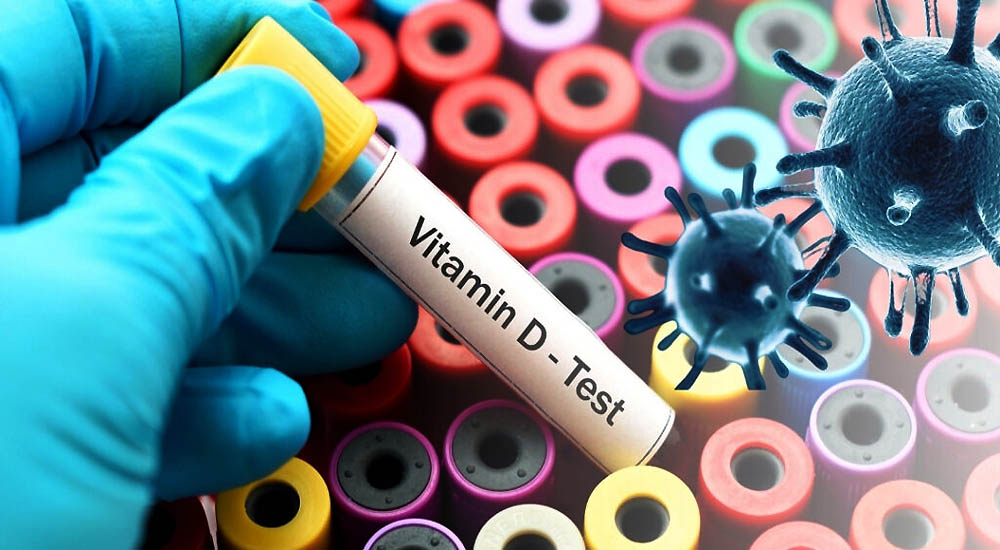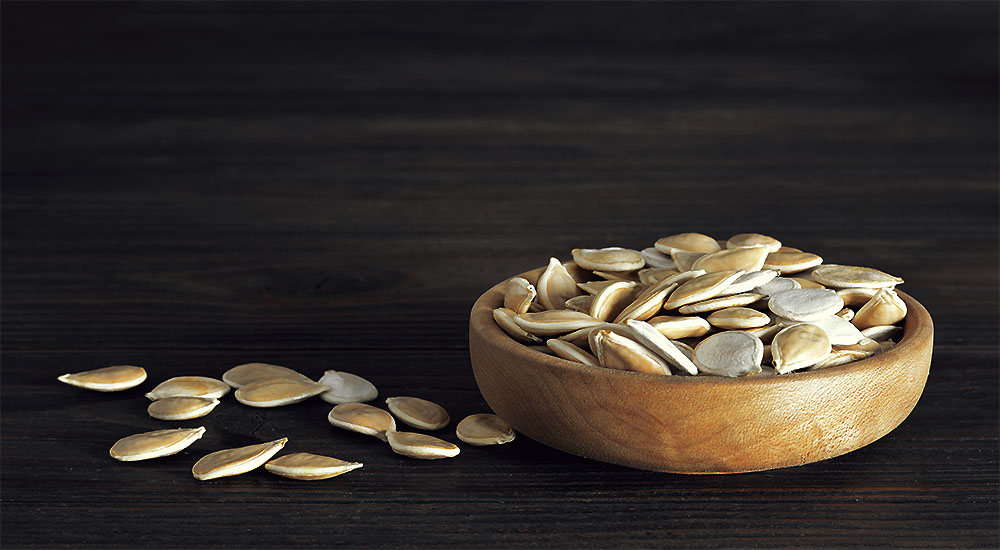Fatty Liver Disease and Increased Risk of Viral Infection

Fatty liver disease is common, but not normal
Fatty liver disease is common amongst Americans, affecting about 100 million of us. It isn’t an American disease; it’s the most common liver disease worldwide.
It affects up to 25% of American adults, 60% of whom are men.
Historically, liver disease was associated with alcoholism, but NAFLD, non-alcoholic fatty liver disease, was coined to make the distinction of fat infiltrating the liver of an individual who did not abuse alcohol.
It’s linked to obesity, in fact, researchers estimate the 90% of patients diagnosed are either overweight or obese. The risk to the general population is about 20% but in the morbidly obese population the risk profile skyrockets to 75-92%.
In addition to overweight, the presence of type 2 diabetes and cardiovascular disease are all co-morbidities, meaning conditions that tend to occur with NAFLD.
Sadly the disease is also being seen in children we are obese, overweight, or who suffer from type 2 diabetes.
The disease is estimated to cost the United States healthcare system $32 billion annually.
Those with fatty liver are over 6x higher risk of poor COVID-19 outcome
I’m writing this during the COVID-19 pandemic, but please understand this data is in no way invalid once we’re passed this particular coronavirus. The truth of all our metabolic diseases is they compromise our immune systems across the board.
A study followed 202 consecutive patients admitted to the hospital with COVID-19. The researchers found that having NAFLD (non-alcoholic fatty liver disease) increased the risk of having a poor outcome with COVID-19 by 6.4x.
This is a significant risk.
How do you get a fatty liver?
Fatty liver is considered a disease of lifestyle. As we mentioned it’s highly associated with overweight and obesity, along with type 2 diabetes and cardiovascular disease.
Fat infiltrates your liver making it hard for the liver to perform it’s many thousand functions.
You can’t survive with a fully malfunctioning liver, so this isn’t a disease to ignore.
I often get frustrated when patients have the early signs of liver disease, elevated liver enzymes, and their doctor dismisses it as unimportant. The facts are that you shouldn’t wait until your liver enzymes are out of the normal range, at the high end of the normal range is already too high. I often hear from new patients that their doctor commented on their high liver enzymes but recommended no change. Their only comment was, “we’ll watch it and re-test in 6 – 12 months”.
That’s terrible advice in my opinion. In that period of time, you could have fully turned around the condition instead of leaving it to worsen.
If you have fatty liver disease (NAFLD), this is an excellent time to address the root cause of it.
What foods should you absolutely avoid?
The standard American diet (SAD) is poor, there’s no denying that.
It’s 60% ultra-processed “food” that shouldn’t even be called food.
It’s clear that saturated fats, omega-6 fats found in vegetable oils, sugar, white flour, artificial chemicals, preservatives, and GMO foods, to name just a few, are all problematic.
There is one sweetener that is a known culprit for fatty liver, and it’s not even fat.
It’s fructose: found in high fructose corn syrup (HFCS) and fructose-rich agave syrup.
Fructose is a big no-no
Let’s start with agave syrup. It’s often touted as a “healthy sweetener”. Don’t fall for it; it’s anywhere from 56% to 90% fructose and potentially inflammatory to your liver.
High fructose corn syrup has about 55% fructose; less than agave by a small percentage.
The problem with fructose is that your body must convert it to glucose in your liver.
The Fatty Liver Foundation, yes there is one, doesn’t pull any punches when it comes to fructose. Here’s what they say: “Fructose over-consumption directly produces fatty liver, which in turn directly creates insulin resistance. Fructose is five to ten times more likely than glucose to cause fatty liver. This sets off a vicious cycle…”
The vicious cycle they’re referring to is that subsequent to high fructose intake and fatty liver comes insulin resistance, which leads to hyper-insulinemia (excess insulin), all in an attempt to overcome the resistance. The end result is type 2 diabetes, obesity, and metabolic syndrome.
Fructose, therefore, is correlated with more than fatty liver; it’s linked to increased blood triglyceride levels, heart disease, and insulin resistance or diabetes and obesity.
Fresh fruit is fine
I’m frequently asked if fruit should be avoided since it contains fructose.
It’s a good question, but the good news is that fresh fruit in moderation is just fine.
Fructose is harmful in large amounts; fortunately, fruit, when eaten fresh, won’t provide excessive amounts.
How is fruit different?
The fruit is full of fiber, antioxidants, and phytonutrients, and water.
If you compare how you feel after eating an entire orange or a cup of berries vs. drinking a soda, you’ll see this is true. It takes a while to chew the fresh fruit and you’ll feel full; the soda can be gulped down quickly and won’t be filling, in fact, you’ll likely crave more food. And of course, the soda has no fiber and no nutritional value.
Fresh fruit takes time to digest and its fructose will be delivered to your liver slowly, at a manageable rate; soda hits your liver like a fast-moving train.
With that said, I like some moderation in fruit consumption, with citrus and berries my favorite for their nutritional value.
A disease of lifestyle
Fatty liver, along with heart disease, type 2 diabetes, and obesity is often referred to as “lifestyle diseases”. It’s not untrue, but I think for those who don’t know that their lifestyle choices are connected with their diseases, this can be frustrating or upsetting to hear.
In the clinic, we see hundreds of patients every single week. The bottom line is they want to know what they should do to change how they’re feeling.
I’m sure you’ve felt this way. Maybe you’ve asked your doctor what you can do and you’ve been told to “eat better, exercise more, or lose weight”. That’s fine, but it doesn’t tend to work.
What is the right diet, or food choices, for you?
What is going to create effective weight loss?
Exercise is healthful, sure, but what if you’re too exhausted or your joints hurt?
You need a personalized program with answers for you
Ultimately you need to repair your fatty liver?
How?
We need to discover why your body created it.
I’ve given you some common “issues” associated with it, but ultimately it’s highly personal and a successful program is one that’s tailored to each individual.
Have you had longstanding burdens on your liver?
Are digestive issues chronic for you?
Have you needed to take a lot of medications?
Has your diet historically been unhealthy?
All these questions need to be answered and the right program created to address the unique reason you have a fatty liver.
The program is natural and it works
The good news is that there’s a successful solution.
It’s non-drug but it does require some diet and lifestyle changes.
Don’t worry; we’ll hold your hand through the changes that need to be made.
If you’re ready to get healthy, it’s truly not difficult.
Do you need help with your health?
We have the diagnostic and testing tools, the clinical experience, and a different medical approach to discovering the root cause of why you have the symptoms that are bothering you. As long as you are ready to make some dietary and lifestyle changes, we can help you. We will "hold your hand" through the changes, step by step, to make each step an easy one. We are located in Clearwater, FL, at 1000 S Ft Harrison, at the corner of Ft. Harrison Ave. and Magnolia St. There is plenty of parking space directly accessible from Ft Harrison. If it is not convenient for you to come to Root Cause Medical Clinic, we offer telehealth/telemedicine consultations to residents of certain states. Call us for details.
Contact us for a Consultation – Call 727-335-0400

Dr. Vikki Petersen DC. CCN
Founder of Root Cause Medical Clinic
Certified Functional Medicine Practitioner
Dr Vikki Petersen is a public speaker, author of two books, several eBooks and creates cutting edge content for her YouTube community. Dr Vikki is committed to bringing Root Cause Medicine and its unique approach to restoring health naturally to the world.
Ask a Doctor
Have a health concern you'd like to speak with a doctor about? Or just want clarity on a subject? Ask Us!
Featured Articles
Popular Stories
Reference:
https://www.ncbi.nlm.nih.gov/pmc/articles/PMC2674744/


